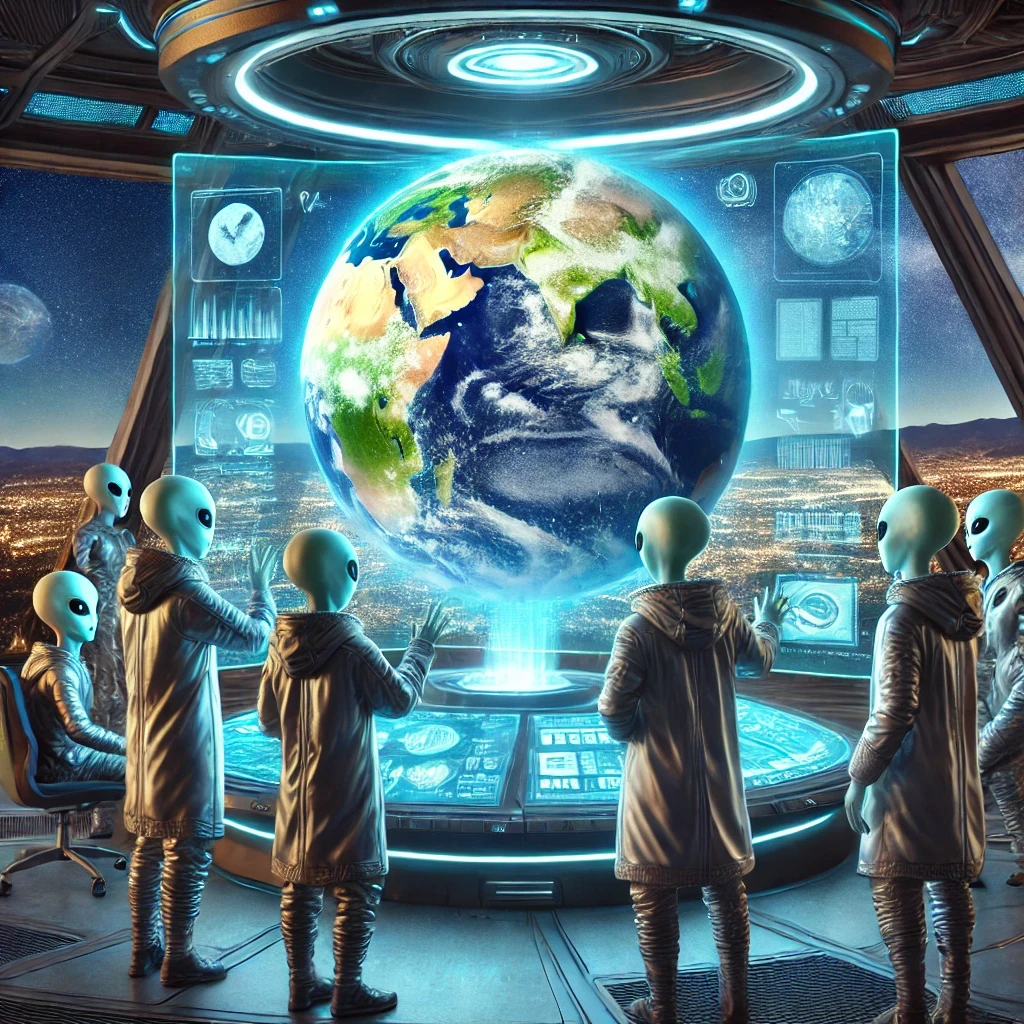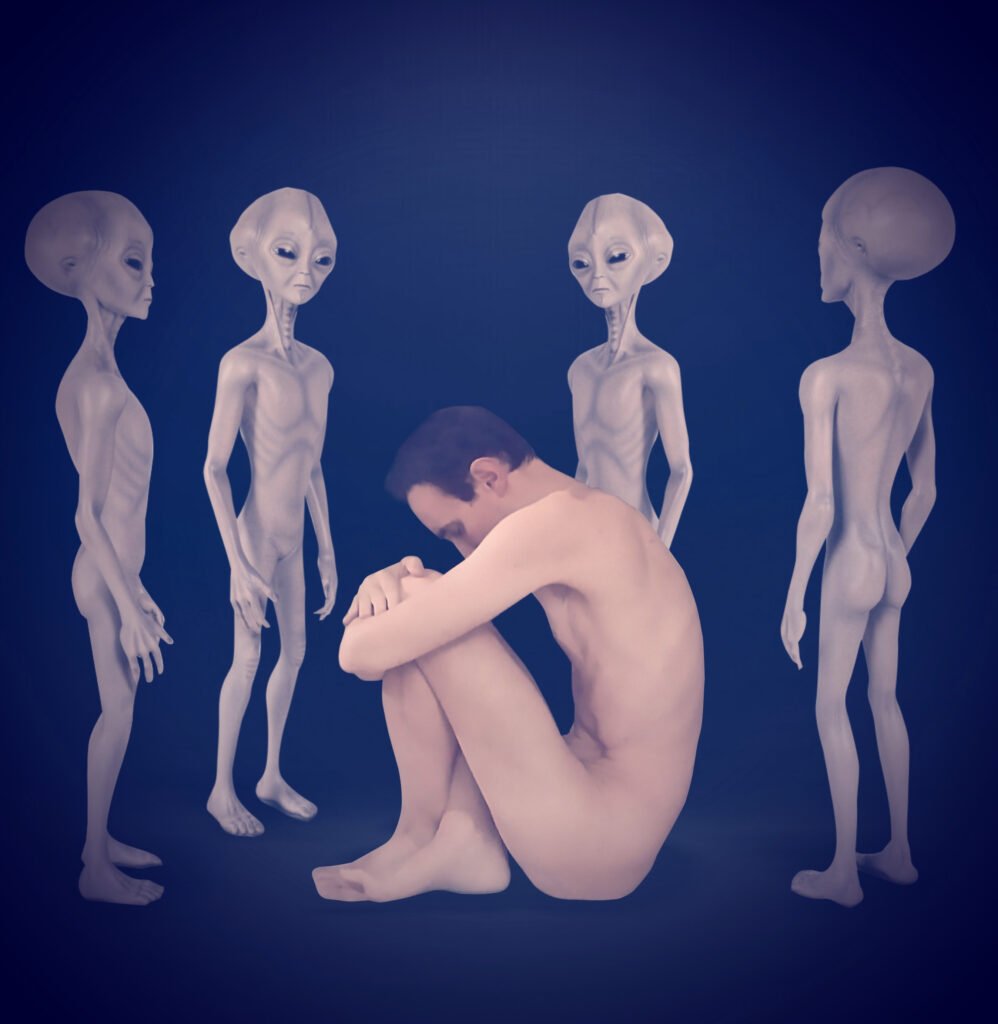The universe is vast, mysterious, and filled with endless possibilities. Among these possibilities is the age-old question: Are we alone in the cosmos? Or, more intriguingly, are aliens deliberately avoiding us? This leads us to the captivating concept of the Zoo Hypothesis, a theory that suggests extraterrestrial civilizations are observing us from a distance, much like zookeepers watching over animals in a zoo. This idea is both thrilling and unsettling, sparking imaginations and debates among scientists and enthusiasts alike. Let’s dive into this fascinating hypothesis and explore the notion of silent watchers from the stars.
The Birth of a Hypothesis
The Zoo Hypothesis was first proposed in the 1970s by MIT radio astronomer John Ball. It suggests that advanced extraterrestrial civilizations might be purposefully avoiding contact with us to allow for natural evolution and sociocultural development. This idea is akin to how humans observe wildlife in natural reserves, ensuring minimal interference. Ball’s hypothesis challenges the traditional belief that alien civilizations would eagerly make contact if they existed. Instead, it posits that these civilizations could be exercising restraint, waiting for humanity to reach a certain level of maturity or technological advancement.
A Universe of Possibilities
The sheer size of the universe is mind-boggling, with billions of galaxies, each containing billions of stars and even more planets. With such vastness, the probability of life existing elsewhere seems high. Yet, the silence from the cosmos is deafening. This silence fuels the Zoo Hypothesis, suggesting that aliens might be observing us without making their presence known. Imagine being in a bustling city, unaware of the millions of lives around you because you’re focused on your own world. This analogy paints a picture of how humans might be perceived by more advanced civilizations.
Silent Watchers or Nonexistent Neighbors?
A critical question arises: Are aliens truly observing us, or are they simply not there? The Fermi Paradox highlights this dilemma by questioning why, given the high probability of extraterrestrial life, we haven’t detected any signs of it. The Zoo Hypothesis offers one potential explanation. It suggests that advanced civilizations might have ethical or moral reasons for not intervening in our development. They could be waiting for us to reach a point where we’re ready for interstellar communication, much like a parent waiting for a child to grow before discussing complex topics.
Ethical Considerations of Non-Interference
The idea of non-interference is deeply rooted in ethical considerations. If advanced civilizations are indeed aware of us, they might adhere to a cosmic code of conduct, ensuring that less developed species evolve naturally. This mirrors the Prime Directive from the fictional universe of Star Trek, where interference with less advanced civilizations is prohibited. Such a stance would require immense patience and discipline, suggesting that these civilizations value the natural progression of life and culture. It raises questions about our own responsibilities as we venture into space and potentially encounter other life forms.
Technological Limitations or Intentional Silence?
Another angle to consider is whether our technological limitations prevent us from detecting alien signals. It’s possible that extraterrestrial communications are happening on frequencies or through methods we haven’t yet discovered. Alternatively, aliens might be using advanced technologies that render their presence undetectable to us. This intentional silence could be a form of protection, ensuring that we don’t become overwhelmed or destabilized by the knowledge of their existence. It’s a humbling reminder of how much we still have to learn about the universe and the potential beings within it.
The Role of Human Curiosity
Human curiosity has always driven us to explore the unknown, from the depths of the oceans to the far reaches of space. The Zoo Hypothesis challenges this curiosity by suggesting that there might be limits to what we can know or experience. Yet, it also fuels our desire to push boundaries and seek answers. Whether through advancements in technology or philosophical inquiry, the quest to understand our place in the universe continues. This relentless pursuit is a testament to the indomitable human spirit, always striving to uncover the mysteries of existence.
Implications for Future Exploration
If the Zoo Hypothesis holds any truth, it has profound implications for our future exploration of space. It suggests that we might need to rethink our approach to seeking extraterrestrial life. Instead of broadcasting our presence, we might focus on listening and observing, much like the civilizations we hope to find. This shift in perspective could lead to new strategies for space exploration, emphasizing patience and observation over immediate contact. It also encourages a deeper reflection on how we conduct ourselves as potential members of a broader cosmic community.
Challenging Our Perceptions
The Zoo Hypothesis challenges our perceptions of intelligence and civilization. It suggests that advanced beings might prioritize values and ethics over technological prowess. This perspective invites us to reconsider what it means to be advanced, emphasizing qualities like empathy, patience, and respect for natural processes. It also encourages us to reflect on our own cultural and ethical development, questioning whether we’re ready for contact with civilizations that might view the universe through a vastly different lens.
Scientific Inquiry and Speculation

While the Zoo Hypothesis remains speculative, it serves as a catalyst for scientific inquiry and philosophical debate. It encourages scientists to explore new avenues of research, from studying the potential for life on exoplanets to developing technologies that could detect alien civilizations. It also invites philosophers and ethicists to consider the broader implications of potential contact with extraterrestrial beings. This blend of science and speculation is what makes the Zoo Hypothesis so captivating, bridging the gap between imagination and empirical inquiry.
The Enduring Mystery of the Cosmos
In the end, the Zoo Hypothesis is a reminder of the enduring mystery of the cosmos. It invites us to embrace the unknown and remain open to possibilities beyond our current understanding. Whether or not aliens are avoiding us, the universe is a vast and wondrous place, full of secrets waiting to be uncovered. As we continue to explore and learn, we must remember that the journey is just as important as the destination. The quest for knowledge and understanding is a never-ending adventure, one that defines our very existence.



